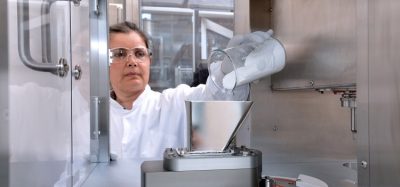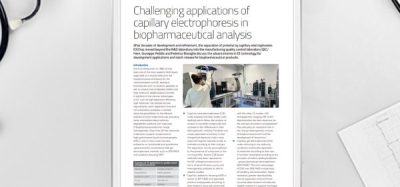UK medicines manufacturing must remain domestic
Posted: 14 June 2023 | Catherine Eckford (European Pharmaceutical Review) | No comments yet
In a new report by the Medicines Manufacturing Industry Partnership (MMIP), nine recommendations were put forward to drive medicines manufacturing growth in the UK’s life sciences sector.


To be a superpower globally, the UK life sciences sector must not only discover and develop medicines of the future domestically, but also manufacture a significant share in the country too, according to a new report from the Medicines Manufacturing Industry Partnership (MMIP).
The “UK’s life sciences sector has tremendous potential to drive significant growth. But it is not enough to discover the medicines and vaccines of the future here, if companies then make them at scale elsewhere,” Brian Henry, Chair of MMIP shared.
Advancing medicines manufacturing in the UK life sciences sector
Medicines manufacturing is the largest economic contributor within the UK life sciences sector. It provides almost 45 percent of the £36.9 billion of GVA delivered by the life sciences industry in 2019. This is compared to 13 percent (£4.8 billion) from life science research and 42 percent (£15.7 billion) from medical technology manufacturing, according to the Association of the British Pharmaceutical Industry (ABPI).
With manufacturing investment competition intensifying worldwide in recent years, the UK’s position as a manufacturing leader has declined. A formerly strong trade balance has become a deficit, the report declared.
With the right policies in place, the UK can be the best global location for innovative and environmentally sustainable innovative medicines manufacturing”
Increasing Government investment, alongside other policy changes, could release a further £15 billion in company investment over the next decade, according to the MMIP.
With the right policies in place, the UK can be the best global location for innovative and environmentally sustainable innovative medicines manufacturing, the organisation stated. This approach could attract new industry investments worth a total of £1.5 billion annually over the next ten years.
In its report, the MMIP set out nine key recommendations to reverse the decline and drive growth:
To drive growth from leadership in environmentally sustainable manufacturing
Implement a three-point plan to deliver global leadership in environmentally sustainable medicines manufacturing: develop an internationally recognised standard for greenhouse gas emissions; develop a technology and innovation roadmap for environmentally sustainable medicines manufacturing. Also establish the infrastructure to enable net zero medicines manufacture.
To drive growth from leadership in manufacturing innovation
Using £1.1 billion over four years would provide sustained, predictable and accessible innovation funding and incentives. This would comprise of £200 million for collaborative R&D grants plus £900 million over four years for medicines manufacturing capital grant funding to unlock £6 billion of industry investment.
Create a five-year digital innovation in medicines manufacturing technology roadmap, including establishing a world-class UK Medicines Manufacturing Data Institute and funding next-generation oligonucleotide manufacturing capacity.
To drive growth by fostering a pro-innovation operating environment
Set internationally competitive R&D tax credits, including relief for capital expenditure, and long-term certainty on capital allowances.
Establish a medicines manufacturing investment “front door”
Secure a leading global talent base, including providing additional funding for flexible biomanufacturing skills building on the successful programmes such as the Advanced Therapy Apprenticeship Programme (ATAC) and Skills and Training Network (ATSTN).
Improve the UK commercial operating environment
Strengthen health resilience through trade policy and streamlined regulation.
Develop a UK medicines manufacturing investment dashboard
Recent government investments in the UK life sciences sector
The first tranche of the UK Government’s existing Life Sciences Innovative Manufacturing Fund (LSIMF), worth £17 million in government funding, unlocked a further £260 million in private sector investment. It safeguarded 199 existing jobs and creating 320 new jobs.
Additionally, the government recently announced to the creation of a Biomanufacturing Fund. The goal is to incentivise new investment and additional funding for innovation projects, through Innovate UK’s Transforming Medicines Manufacturing Programme.
Driving growth of the UK medicines manufacturing sector would help to build on recent successes like the Advanced Therapies Manufacturing Action Plan, which resulted in early UK leadership in cell and gene therapies manufacture.
Related topics
Biopharmaceuticals, Drug Development, Drug Manufacturing, Industry Insight, Manufacturing, Research & Development (R&D), Technology, Therapeutics
Related organisations
ABPI (Association of the British Pharmaceutical Industry), Medicines Manufacturing Industry Partnership (MMIP), UK Government








